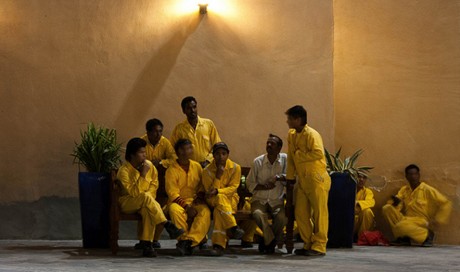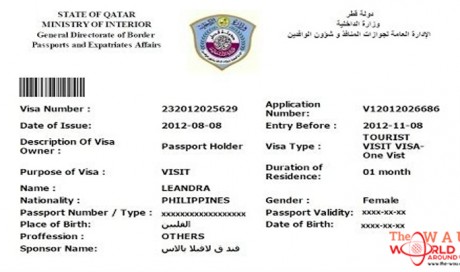Question: My name is Abdullah, I have started working here in Qatar for a company recently. My employment contract states that I will not be paid for leave days, holidays. The contract also mandates that I won’t be paid for any overtime. Is it possible for me to contest these terms of the contract after I have signed it?
Hello Abdullah, first of all congratulations on getting a job here in Qatar. We would like to inform you that articles73-75 of the current Qatar Labor Law govern the terms of working hours and overtime, whereas articles 78-85 of the same act govern the terms of holidays and leave.
Since your question is regarding overtime and holidays/leaves we would only quote the relevant articles of the law to inform you of your rights under the law.
Firstly, article 38 of the Law codifies ‘The Service Contract’, the article states:
The Service Contract shall be made in writing and attested by the Department and shall comprise three copies, one copy to be delivered to each of the parties and the third copy to be deposited with the Department.
The Service Contract shall specify the terms concerning the labour relationship between its two parties and in particular shall contain the following: ¬
• The name of the employer and place of his work.
• The name, qualifications, nationality, profession and residence of the worker and the proof necessary for his identification.
• The date of conclusion of the contract.
• The nature and type of the work and place of contracting.
• The date of commencement of the work.
• The period of the contract if the contract is of a definite duration.
• The agreed wage and the method and date of the payment thereof.
If the service contract is not made in writing the worker may prove the labor relationship and the rights which have arisen therefrom by all means of proof.
Article 73 of the current Qatar Labor Law states,
“The maximum ordinary working hours shall be Fourty Eight hours per week at the rate of eight hours per day with the exception of the month of Ramadan when the maximum working hours shall be thirty six hours per week at the rate of six hours per day.
The time spent by the worker in transportation to and from the place of work and residence of the worker shall not form part of the working hours.
The working hours shall include an interval or more for prayer, rest and taking of meals which interval or intervals shall not be less than one hour and shall not be more than three hours. The said intervals shall not be taken into consideration in calculating the working hours in fixing the rest interval but the worker shall not work for more than five consecutive hours.
The Minister shall by a decision specify the types of work in respect of which the work may continue without stoppage for the purpose of rest.”
Article 74 of the law states,
The workers may be required to work additional hours to the working hours specified in the preceding article provided that the actual working hours per day shall not exceed ten hours unless the work is necessary for the prevention of gross loss or dangerous accident or for the repair or alleviation of the consequences of the said loss or accident.
The employer shall pay to the worker for the additional working hours the rate of not less than the basic wage plus not less than 25% thereof.
The workers who work between 9pm and 6am shall be paid the basic wage plus not less than 50% thereof with the exception of the shift workers.
Additionally, according to Article 75:
The worker shall be allowed of a weekly paid rest which shall not be less than twenty-four consecutive hours and Friday shall be the weekly rest day for all workers with the exception of the shift workers. If the circumstances of the work necessitate the employment of the worker during the rest day the worker shall be compensated for the rest day by another day, and shall be paid for working that day the wage payable to him for the ordinary weekly rest day or his basic wage plus an increase of not less than 150%.With the exception of shift workers a worker shall not be required to work more than two consecutive Fridays.
However, Article 89 of the law dictates that:
A Juvenile may not be employed between sunset and sunrise or on the days of rest or during the official holidays or for more than the normal working hours and may not be retained in the place of work for more than seven continuous hours.
The law provides specific articles providing extensive rules to govern the issues of leave/holidays.
According to Article 78 of the law, workers are entitled to leave with full wage as follows:
1. Three working days for Eid EI-Fitr
2. Three working days for Eid Al-Adha
3. One working day for the Independence day
4. Three working days to be specified by the employer.
Article 79 specifies that if a worker has completed one continuous year in employment he/she shall be entitled to paid annual leave, ranging from 3 weeks for worker with less than 5 years’ service and 4 weeks for the worker whose service exceeds 5 years. Additionally, Article 81 mandates that a worker may not waive his entitlement to the annual leave and any agreement to the contrary shall be void, that’s any agreement to not take leave is legally null and void.
According to Article 82, workers are entitled to sick leave with pay for every year of their employment. Sick leave in case it is extended beyond 4 weeks would be without pay until the worker resumes his work or resigns or is terminated due for health related factors. The only instance where the law recognises the right of the employer to not pay a worker during leave period is codifies in Article 83, it states:
The Muslim worker shall be entitled to leave without pay, not exceeding two weeks to fulfill his obligation to go to pilgrimage once during the period of his service.
Share This Post












